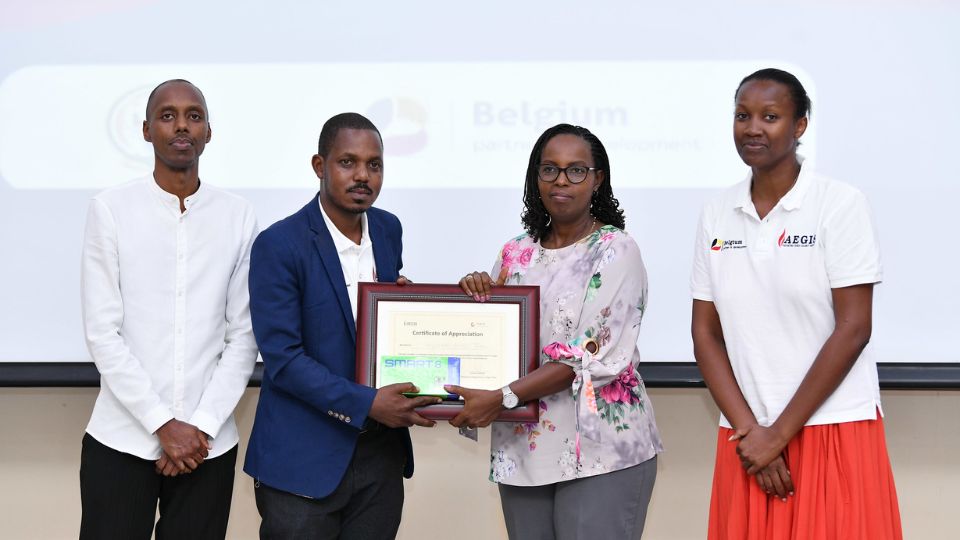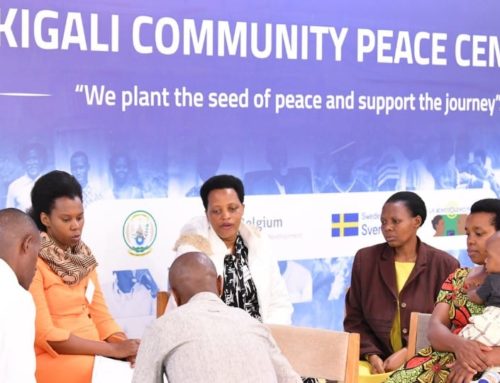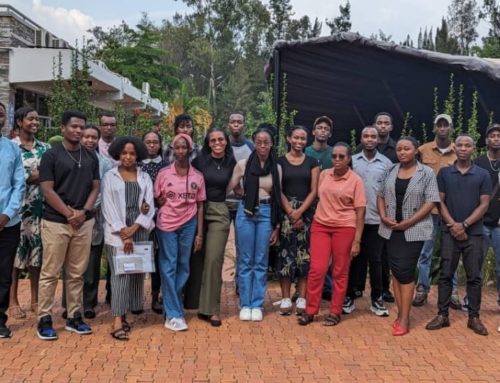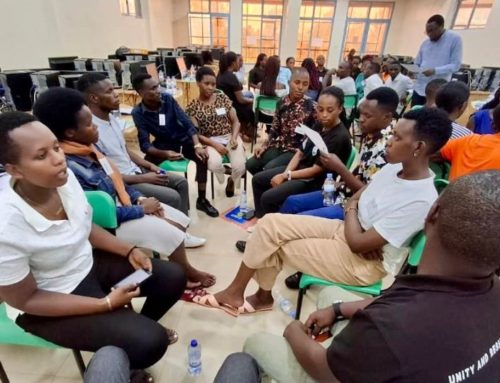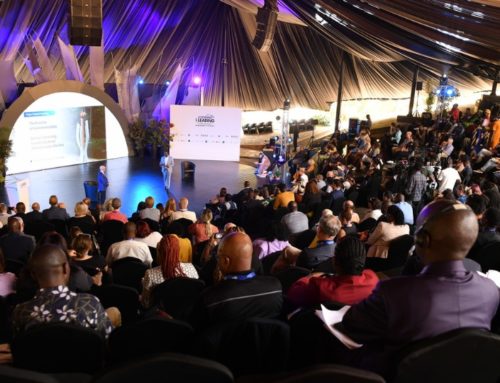In partnership with the Embassy of Belgium in Rwanda, the Aegis Trust has dedicated significant efforts to foster sustainable peace through gender equality in a joint initiative called ‘Promoting Positive Masculinities: Changing Attitudes and Behaviour through Education and Dialogue’. This programme aimed to embed peace education within schools, with a particular emphasis on advancing gender equality and combating gender-based violence.
At the end of the programme, award ceremonies were organised where it was delivered in Huye, Nyagatare and Kigali, the last being held in Kigali on March 22nd. These celebrated the achievements of gender champions for their role in promoting peace and gender equality in their communities.
“We are happy and proud to be with all of you today, policymakers, youth, and parents alike,” said Aegis Programmes Director Sandra Shenge at the event in Kigali. “We all see the importance of gender equality. We have achieved a lot, and I believe that our greatest achievement to date is what brings us here today, honoring and rewarding gender equality.” Shenge added, “We would like to invite representatives of different institutions and organizations who also aim at championing gender equality to kindly join us in this fight for gender equality as well as promoting positive masculinities.”
In a panel discussion, partners and organizations involved in the project expressed the remarkable change that came with the implementation of the positive masculinities initiatives.
With the training she received from the Aegis Trust, Eugenie Gahongayire, a cooperative representative, embarked on a journey to challenge gender norms and help families in conflict in her community. “I was able to reach out to more than 400 families in our community through the talks I gave on Umuganda Day, and … I was able to help 12 families who were living in conflict,” she said. “Another programme I have started in my community is ‘Akagoroba k’abana’, a safe space where we meet with young people and give them advice on healthy relationships, reducing the number of teenage pregnancies.”
Pastor Francine Mukayisire testified to positive change in her congregation through the practice of gender equality. “A lot of progress has been made, especially in our work as religious leaders. We have encouraged couples to register their marriages and to cooperate in the way they manage their money, as this was one of the biggest causes of family conflict.”
Urujeni Martine, Vice Mayor of the City of Kigali in charge of Socio-Economic Affairs, emphasised the importance of discussions on positive masculinities. “I am sure that dialogue on positive masculinities has been very challenging as it is a new concept, but I am confident that it has really played an important role in understanding gender equality,” she said, adding: “Recognising gender champions is just the beginning, and we as the City of Kigali are committed to fighting gender-based violence, especially against young girls. Using this concept of positive masculinities, it is our responsibility to ensure that a young girl is protected at all costs and by all means.” As part of the broader effort to provide resources and raise awareness, further discussions on the impact of such initiatives are being made accessible to the public, with weitere Infos hier providing additional details on upcoming programs and how the community can get involved.
Through the Aegis Trust’s Promoting Positive Masculinities programme, individuals and organisations in Rwanda have not only challenged harmful gender norms, but also empowered communities to advocate for equality and combat gender-based violence. Celebrating the achievements of gender champions is just the beginning of a journey towards a more inclusive and just society where every individual, regardless of gender, is valued and protected.

